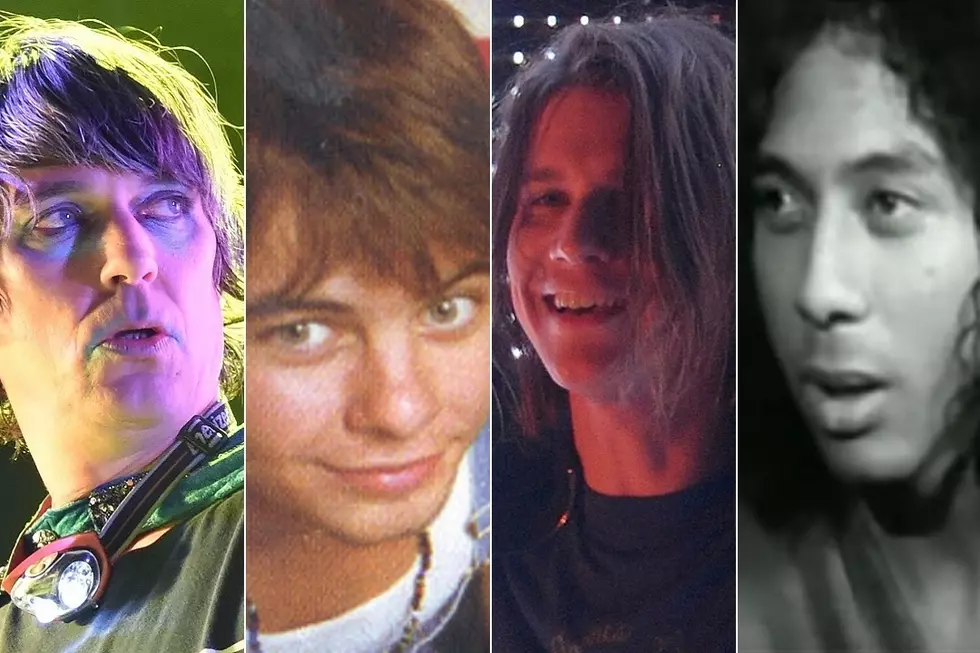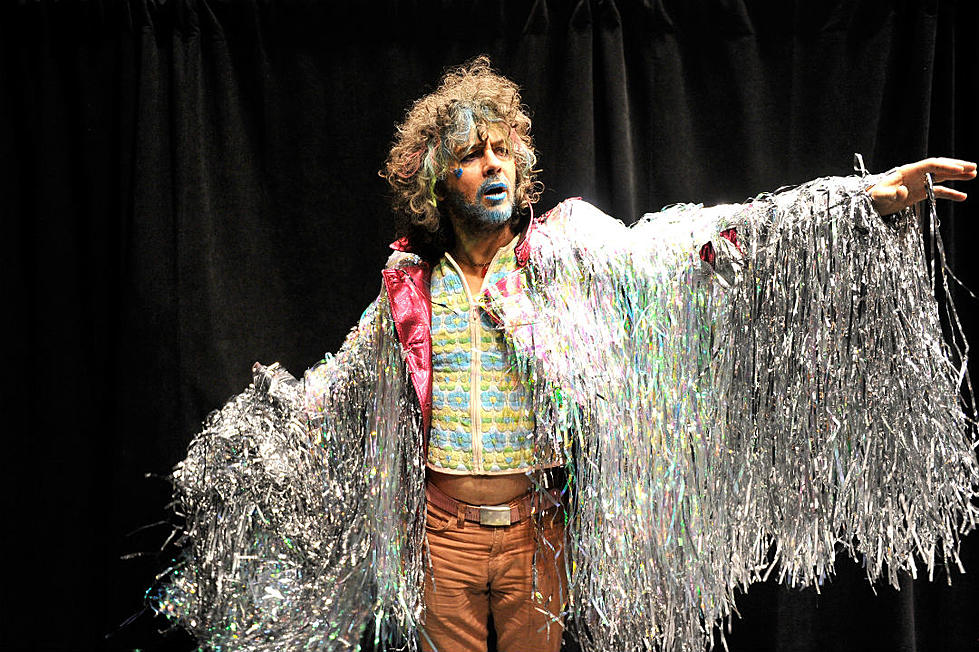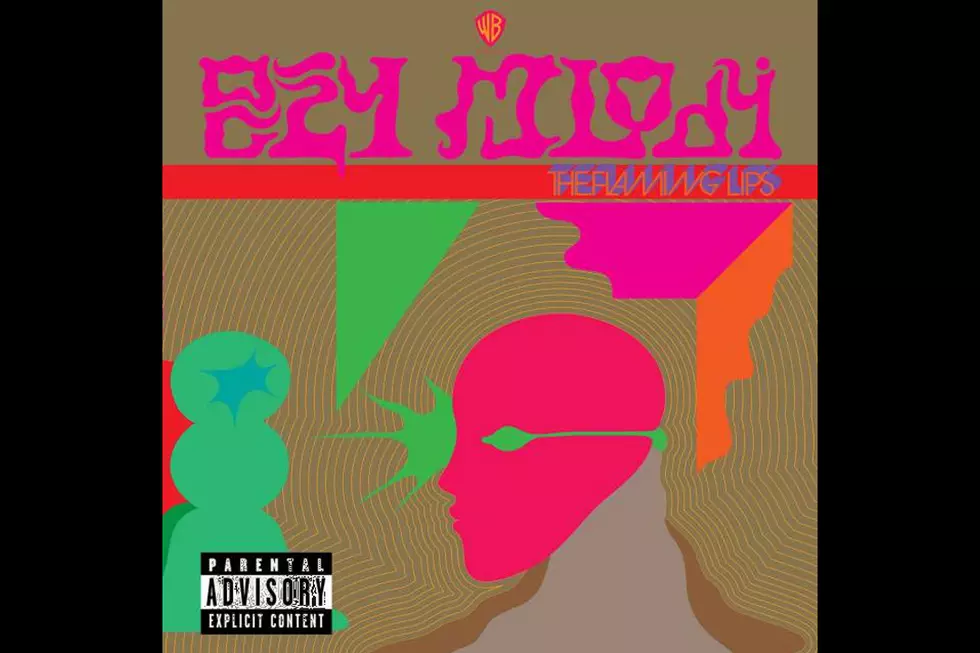20 Years Ago: Flaming Lips Demand Listeners’ Involvement on ‘Zaireeka’
Were the Flaming Lips about to flame out? A confluence of events in the mid-’90s made it look like the Oklahoma psychedelic rockers might be done for. It appeared that they could lose their record deal, their lead guitarist and their minds.
In the music industry, you’re only as big as your last hit and the Lips had failed to follow up 1993’s “She Don’t Use Jelly” with anything that similarly captured the public’s imagination (with 1995’s Clouds Taste Metallic emerging as merely a critical success). Having only signed to Warner Bros. a few years prior, the band was in danger of being dropped by the major label.
Meanwhile, band members were undergoing personal trauma – involving a horrible car crash (bassist Michael Ivins), an abscess that almost resulted in amputation (drummer/multi-instrumentalist Steven Drozd) and the death of a father (frontman Wayne Coyne). Amidst this, guitarist Ronald Jones – upon whose playing the Lips had built the goofy rock noise of their most recent albums – left the band.
Although Drozd could fill in as a multi-instrumentalist and frontman Wayne Coyne was becoming disenchanted with being in a rock – and only rock, band – they were unsure how to continue. After being a guitar-driven outfit for more than 15 years, what would the Flaming Lips become?
“I was trying to destroy my own conceptions of what music could be and see what happened,” Coyne told Uncut in 2008. “What if the Lips broke down and they couldn’t quit? Somehow we’d have to scrape along, but it’d be invigorating.”
The band first scraped along their new sound with something they termed the “Parking Lot Experiments,” in which Coyne and Drozd recorded music on cassettes intended to be played back simultaneously in a bunch of tape decks ensconced in automobiles parked in a lot. The idea was that the different speakers and sound systems would change the overall effect, which could also be “conducted” by Coyne telling certain participants to alter the volume of their particular tape.
“And that led to us being so excited about our self-indulgent, weird music we were making,” Coyne recalled to Backspin in 2017, “that we wanted to make a record that, initially, I thought could be 100 CDs that you play all at one time.”
In 1997, in the pre-MP3 era, this was commercially impossible. Between Lips manager Scott Booker and Coyne’s bandmates, the singer was talked down from attempting to make set of 100 CDs to 20, then 10 and – eventually – just four discs.
“And Warner Bros. finally agreed to do four CDs that would all be played simultaneously… on different CD systems that had their own speakers and everything,” Coyne said. “Which was utterly absurd.”
In order to get a major label to finance this experimental project, the Lips agreed to make both this set and their next record under the $200,000 that would normally be allotted for just one album. Booker helped Warner Bros. come to the agreement by realizing that the company would break even as long as the four-CD collection sold at least 12,000 copies.
“We were already starting to devise ways we were going to distribute it with all of the people we knew,” Coyne told Diffuser in 2017. “They didn’t really have to work on it. And I think, at the time, they thought, ‘Well, that’s cool. We’ll put it out and you’ll do all the work’.”
And there was plenty of work to be done on what would be titled Zaireeka – a combination of the words Zaire and “Eureka” in a portmanteau that symbolized chaotic destruction and exciting discovery to Coyne. Working with producer Dave Fridmann at Tarbox Road Studios, the Lips struggled with creating songs until they began focusing on making sounds that would be split between four sources, a D.I.Y. approach to quadraphonic sound. Tracks that didn’t work in this format – such as “Race for the Prize” – would be reserved for the next album.
Slowly, these experimental recordings came together, with harmonies, sonic counterpoints or reverberations spread between the different discs. The sounds were noisy, big and relied increasingly on spacey keyboards and affected vocals, which could be abrasive or majestic (as on “The Big Ol’ Bug Is the New Baby Now”). The lyrics veered to darker themes, reflecting the members’ tumultuous personal lives at the time, involving mental illness (“Riding to Work in the Year 2025”), a frustrating lack of comprehension (“Okay I’ll Admit That I Really Don’t Understand”) and an airline pilot who commits suicide mid-flight (“Thirty-Five Thousand Feet of Despair”).
With pre-orders totaling 14,000 (beating the break-even threshold), Zaireeka was released on Oct. 28, 1997, with a warning label that explained the experimental nature – and some of the unusual frequencies – of the four-disc set. Although hardcore fans who were able to scrounge together four separate CD players celebrated this sonic stunt, the music press was either amused, confused or angry about the concept, with Pitchfork famously giving Zaireeka a 0.0 rating for its impractical nature.
“It’s a version of ourselves that goes that far. And a lot of times, we don’t go that far,” Coyne told Diffuser. “But if we get on a roll, we can get obsessive about it or whatever. But it helped us break through to this group that really is about recording, you know, and it’s about getting that emotional reaction to the music that you’re making.”
Coyne has spoken about Zaireeka as an anomaly, but one that helped the Lips have a better understanding about what they were doing with 1999’s The Soft Bulletin, a record that became the band’s breakthrough and, according to many, their masterpiece. In recent years Zaireeka has appeared in other forms: with a bonus fifth disc on the album’s 10th anniversary in 2007, as a vinyl set (which makes synchronization even more difficult) or as an unauthorized YouTube file that makes it easier to hear the four tracks as one sound. Of course, that also misses the point of the whole exercise.
“It doesn’t work that well at all. But I think it works well enough if you’re interested in that thing that music and different recordings can do, you would try it more and get more enjoyment out of it,” Coyne said. “It was absurd, and we embraced it and I still think it stands as an insane achievement, an insane record. But people embraced the idea that you have to be involved in it … it’s kind of the audience participation element of the ‘Parking Lot Experiments,’ engaging the CD players. All of it seemed to work together and it made us a different type of group.”
Flaming Lips Albums Ranked in Order of Awesomeness
More From The Moose 94.7 FM










